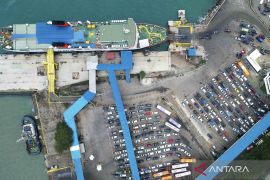HONG KONG, Jun. 27, 2012 (ANTARA/PRNewswire-Asia) --
Western Union study states Bahrain, Kuwait, Oman, Qatar, Saudi Arabia and UAE prospects positive
Despite regional political turmoil and the continuing global economic slowdown, demand for foreign workers remains high in the Gulf region, according to a study sponsored by Western Union (NYSE:WU), a leader in money transfer and global payment services.
"Despite the political uprisings and civil unrest in some parts of the Middle East and North Africa, the region is still witnessing moderate growth, and in the Gulf countries there is an even stronger imperative to sustain economic growth and meet social needs. We expect opportunities for international workers to remain strong and with that remittance flows from host to home countries," said Jean-Claude Farah, Western Union's Senior Vice President for the Middle East and Africa
"The Asia Pacific region has been a significant source of labour for Gulf countries -- led by India, Philippines, Bangladesh, Indonesia, Sri Lanka, Malaysia, Thailand and Nepal. This study should instill greater confidence for global workers seeking employment in these countries," said Drina Yue, Managing Director and Senior Vice President, Asia Pacific.
The Western Union-sponsored study, "The Economic Impact of the Uprisings in the MENA Region", said that economic forecasts for Gulf Cooperation Council (GCC) countries are much better than those for the Middle East North Africa region (MENA) as a whole, and in fact have been positive. The GCC countries are Bahrain, Kuwait, Oman, Qatar, Saudi Arabia and the United Arab Emirates (UAE).
The study's lead author, Dr. Ahmed Farouk Ghoneim, Professor of Economics at Cairo University, said that real GDP growth in the GCC was expected to remain strong despite short-term disturbances, from a base of 3.1% to 20% in 2011.
To read table of "Real GDP growth rates in GCC countries", please click here (http://www.prnasia.com/sa/attachment/2012/06/2012062711362477247.pdf ).
Dr Ghoneim also said that region's countries have limited exposure to the international financial crisis. "In relative terms, the financial crisis and oil and food price increases have had only mild effects on MENA economies, owing to their limited integration into the world economy," he said, adding, however, that Gulf countries did face modest inflationary pressures from increased social spending.
Within the MENA region, Dr. Ghoneim said, labour markets are facing different types of problems, but "migration and remittances constitute a common cure" for high unemployment in some countries of the region and the need for workers to sustain growth in others.
About Western Union:
The Western Union Company is a leader in global payment services. Together with its Vigo, Orlandi Valuta, Pago Facil and Western Union Business Solutions branded payment services, Western Union provides consumers and businesses with fast, reliable and convenient ways to send and receive money around the world, to send payments and to purchase money orders. The Western Union, Vigo and Orlandi Valuta branded services are offered through a combined network of approximately 500,000 agent locations in 200 countries and territories. In 2011, The Western Union Company completed 226 million consumer-to-consumer transactions worldwide, moving US$81 billion of principal between consumers, and completed 425 million business payments.
The full report is available on request.
For more information, please contact:
Grayling
Bruce Shu
Mobile: +852-9132-2906
Western Union
Pia de Lima
Vice President, Corporate Communications, Asia Pacific
Tel: +852-3405-8091
pia.delima@westernunion.com
SOURCE: Western Union
Editor: PR Wire
Copyright © ANTARA 2012











